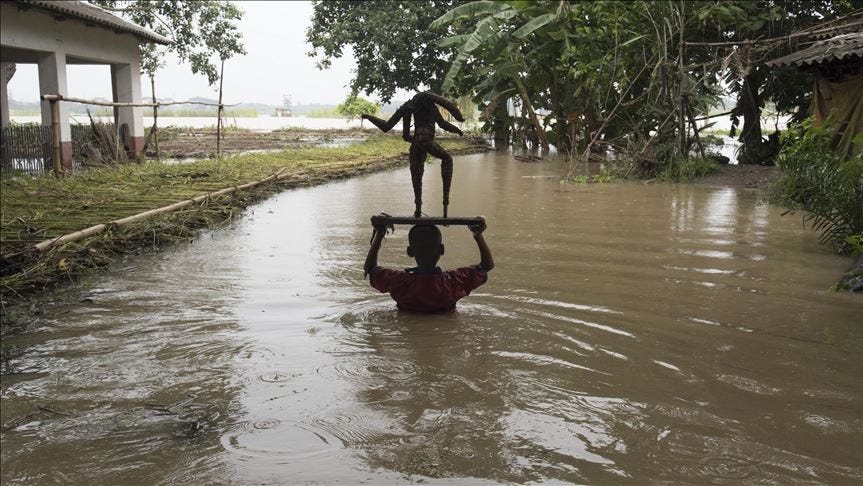Why Study Crisis Management in Nepal? Exploring the Scope and Opportunities
Nepal is a country marked by its natural beauty, but also by its vulnerability to a range of natural and human-made disasters. Situated in one of the most disaster-prone regions of the world, Nepal faces constant threats from earthquakes, floods, landslides, and the growing impacts of climate change. These factors place Nepal high on the INFORM Disaster Risk Index, highlighting the urgent need for comprehensive crisis management.
Despite this, the country lacks adequate institutional preparedness and disaster-sensitive culture among communities and individuals. This gap is further exacerbated by the absence of a robust disaster insurance system and a shortage of skilled professionals capable of handling crises in organizations and businesses. These realities emphasize the critical need for well-trained disaster management experts who can guide the nation through unpredictable crises and mitigate their devastating effects.
Why Study Crisis Management?
Vulnerability and Preparedness: Nepal's geographical location makes it vulnerable to multiple hazards, from earthquakes to landslides and floods. A crisis can strike anytime, and effective disaster management strategies are essential to minimize loss of life, infrastructure, and economy. By studying crisis management, professionals can actively contribute to creating resilient communities that are better equipped to respond to and recover from disasters.
Addressing Institutional Gaps: There is a significant lack of institutional preparedness in Nepal, both at the government and community levels. As disasters become more frequent and severe due to climate change, skilled crisis managers can bridge this gap by implementing disaster-sensitive policies, strengthening preparedness programs, and ensuring that institutions are capable of withstanding crises.
Building a Disaster-Sensitive Culture: For long-term sustainability, Nepal needs to cultivate a culture that values disaster preparedness, response, and recovery. Crisis management professionals play a key role in fostering this mindset among communities, individuals, and businesses. This shift is essential for the future, as it will help people anticipate risks and act proactively in the face of danger.
Scope for Employment: Crisis management is not limited to government roles or non-profit organizations. The scope extends to private businesses, humanitarian organizations, and sectors such as health, logistics, and education. Skilled professionals are needed to handle crisis communication, emergency response planning, business continuity, and post-disaster recovery efforts. As Nepal continues to experience economic growth, businesses will increasingly rely on crisis managers to mitigate the risks of natural disasters and other crises that could disrupt operations.
Growing International Demand: In addition to domestic opportunities, crisis management is a field that offers global opportunities. As the world grapples with issues such as climate change, pandemics, and security threats, crisis management experts are in high demand worldwide. This provides Nepali graduates with the chance to work in international organizations, NGOs, and multinational companies dedicated to disaster preparedness and humanitarian assistance.
Where to Study Crisis Management in Nepal?
For those looking to build a career in this vital field, Samarpan Academy’s Institute of Crisis Management Studies (ICMS) in Dhumbarahi, Kathmandu, offers a unique opportunity. Affiliated with Tribhuvan University, ICMS runs the only Master’s in Crisis Management Studies program in Nepal. This two-year program is designed to equip students with both theoretical knowledge and practical skills to manage disasters and crises effectively.
What sets the ICMS program apart is its multidisciplinary approach, which combines teaching methodologies from diverse fields such as management, sociology, psychology, and environmental science. The course content covers everything from disaster preparedness and risk assessment to post-disaster recovery and humanitarian assistance.
Who Should Enroll?
The program is ideal for a broad range of individuals, including:
Professionals already working in disaster or crisis management who want to deepen their expertise.
Retired or in-service security personnel, such as army or police officers, who are seeking to transition into civilian disaster management roles.
Government employees looking to enhance their skills and play a more significant role in national disaster preparedness and response.
Fresh graduates from any discipline who are interested in building a career in disaster risk reduction, humanitarian assistance, and crisis management.
This program offers students the opportunity to collaborate with experts in the field, gain hands-on experience through internships, and engage in research that contributes to Nepal’s national disaster preparedness. ICMS graduates have gone on to work with government agencies, international organizations, and NGOs, making a tangible impact in improving disaster resilience both in Nepal and beyond.
Final Thoughts
Studying crisis management is not only an academic pursuit but a career path that offers opportunities to make meaningful change in the face of adversity. Nepal, with its high vulnerability to disasters and gaps in preparedness, desperately needs skilled crisis managers who can help the country navigate future challenges. Whether you’re already in the field or looking to transition into it, the Institute of Crisis Management Studies at Samarpan Academy provides the perfect platform to kickstart or advance your career in this vital sector.
Author: ICMS Staff Writer


